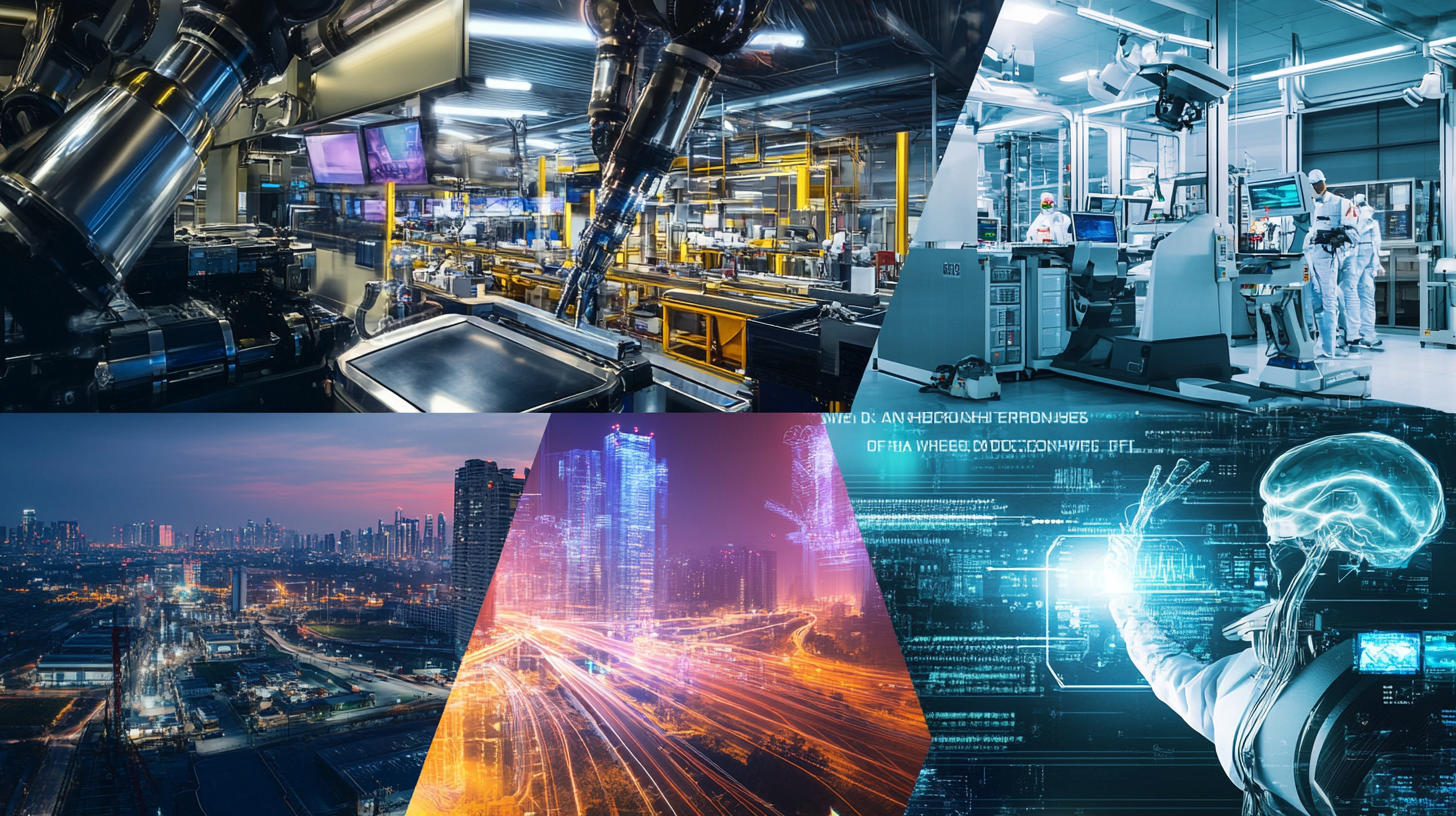Published on: December 15, 2024 / Update from: December 15, 2024 - Author: Konrad Wolfenstein
AI in use: These economic sectors benefit the most from future technology
Which industries benefit most from AI-driven automation?
With its ability to analyze large amounts of data in real time, optimize processes and automate complex tasks, AI has the potential to bring about profound changes in almost all sectors of the economy. But which industries benefit most from these developments? Below, the key industries that benefit particularly from AI-controlled automation are presented, as well as the respective advantages and application examples described in detail.
1. Manufacturing industry
Manufacturing is one of the industries that is already benefiting significantly from AI-driven technologies. Here, productivity, efficiency and quality are significantly increased through innovative AI applications.
Automation and quality control
In modern production, AI-supported systems are used to detect errors early and minimize quality problems. Machine learning makes it possible to recognize patterns and report deviations in real time. This allows scrap rates to be reduced and costs to be cut.
Predictive maintenance
AI models analyze sensor data from machines to predict when maintenance is required. In this way, downtime can be minimized and production interruptions avoided.
Robots and cobots (collaborative robots)
Robots take on repetitive tasks, while cobots work closely with humans. This increases precision and productivity and relieves employees of monotonous tasks.
An example of the application of AI is automobile production, where robots not only carry out assembly work, but also use AI analyzes to optimize the efficiency of the entire supply chain.
2. Healthcare
Healthcare is faced with the challenge of meeting increasingly complex patient needs, and AI offers transformative solutions.
More precise diagnoses and personalized treatments
AI can make diagnoses more accurately and quickly by analyzing patient data and medical images. Systems like IBM Watson Health analyze massive amounts of medical literature to provide doctors with evidence-based suggestions.
Optimization in drug development
Pharmaceutical companies are using AI to accelerate the development of new drugs. Algorithms can predict possible active ingredients and thus significantly reduce research time.
Virtual nursing assistants
Chatbots and AI-powered applications help patients take medications, monitor symptoms, and schedule appointments.
AI not only helps reduce healthcare costs, but also improves the patient experience through faster diagnoses and individually tailored treatment plans.
3. Financial sector
The financial sector is an industry that is gaining enormous efficiency and can better manage risks through the implementation of AI.
Fraud detection and risk management
Banks are using AI to identify unusual transactions in real time to prevent fraud. Machine learning models detect patterns that could indicate fraudulent behavior.
Automation of financial processes
Tasks such as creating reports, managing customer accounts, and compliance checks can be completed faster and error-free with AI systems.
Personalized financial advice
Robo-advisors like those from Betterment or Wealthfront offer personalized investment strategies based on customers' financial goals and risk tolerance.
Automation in finance not only reduces costs, but also improves customer experience through faster and more personalized services.
4. Logistics and transportation
Logistics and transportation benefit enormously from AI, particularly by optimizing routes, reducing delivery times and improving warehouse management.
Route planning and fleet management
AI-based tools analyze traffic and weather data to calculate optimal routes for delivery vehicles. This not only saves time but also fuel costs.
Real-time tracking
Tracking deliveries in real time allows for better visibility and customer satisfaction. AI systems can also predict when deliveries will arrive.
Automation in warehouses
Warehouse robots equipped with AI organize inventory more efficiently, reduce errors, and adapt flexibly to changes in demand.
These applications make the entire supply chain more efficient, which creates a competitive advantage, especially in the e-commerce sector.
5. Retail
Retail is seeing AI reshape the way it engages customers and sells products.
Personalizing the shopping experience
Recommendation systems, like those used by companies like Amazon or Zalando, analyze customer behavior to make personalized suggestions. This increases customer satisfaction and sales.
Automated pricing
AI analyzes market data to dynamically set prices that are both competitive and profitable.
Efficient customer service
AI-powered chatbots answer common customer questions 24/7 and provide assistance with issues. This reduces waiting times and relieves the burden on customer service.
Additionally, AI-powered analytics optimize inventory management by predicting demand and thus avoiding overstocking or understocking.
6. Public sector
The public sector is also increasingly using AI technologies to make processes more efficient and transparent.
Optimization of administrative processes
AI tools automate routine tasks such as processing applications or managing documents, allowing governments to work faster and more cost-effectively.
Improving public safety
AI-powered surveillance systems can detect potential threats early and help fight crime.
Smart city planning
By analyzing traffic and environmental data, AI supports the development of sustainable and livable cities.
The use of AI in the public sector makes it possible to offer better services to citizens while conserving resources.
7. Agriculture
Agriculture is another example of an industry being revolutionized by AI technologies.
Precision agriculture
AI-powered systems analyze weather, soil and crop data to help farmers make sowing, irrigation and fertilization decisions.
Harvest optimization
AI-controlled machines can predict yields and control automated harvesting systems, increasing efficiency.
Animal health monitoring
Sensors and AI-supported analyzes detect early signs of disease in farm animals.
The application of such technologies increases productivity and reduces environmental impact.
AI improves efficiency, reduces costs and creates new business opportunities
The impact of AI-driven automation is profound and cross-industry. Whether in manufacturing, healthcare, finance or the public sector, AI improves efficiency, reduces costs and creates new business opportunities. Companies that invest in AI technologies at an early stage not only secure a competitive advantage, but also actively shape the future of their industry. While there are challenges to adopting AI, the benefits outweigh them, particularly the ability to use resources more effectively and develop more innovative solutions. AI is not just a trend, but an indispensable tool for the future.
Suitable for:


